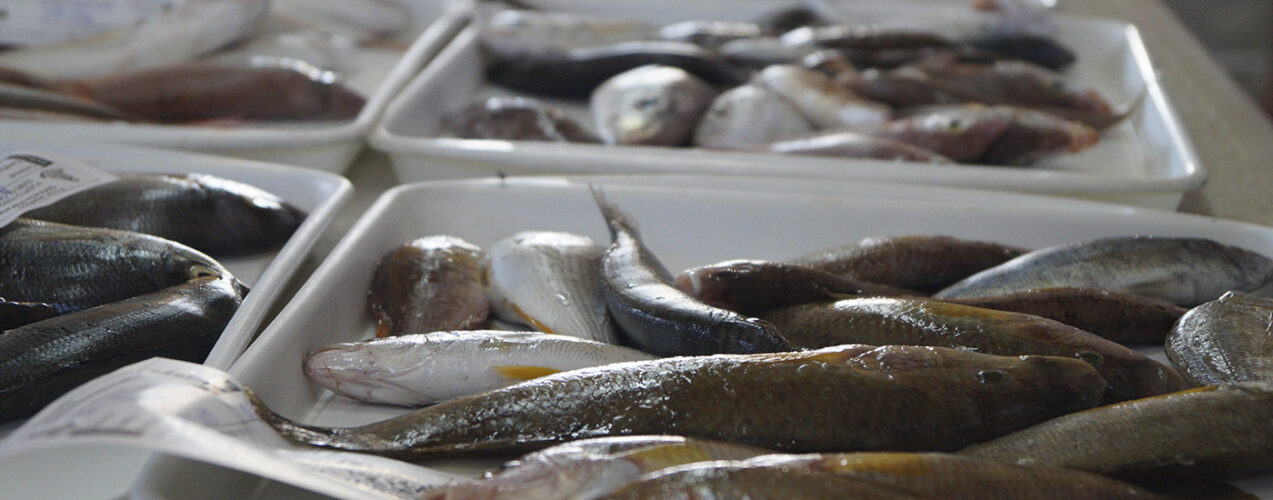A team from the Universitat Politècnica de València (UPV) led by Paloma Herreraon Campus Gandia, with the collaboration of researchers from five other Spanish universities working on the Digipesca Project, has created a new and powerful resource in the form of a database that will help the scientific community to study and understand seafood extraction and marketing.
The project is funded by the Ministry of Agriculture, Fishing and Food through Next Generation funds under the the Recovery, Transformation and Resilience Plan.
In particular, they have generated a set of 12 databases that each present some 400,000 variables related to sales made in the fish exchanges from 2010 to 2021 in the Spanish Mediterranean Sea, as wll as the Atlantic Ocean that bathes Andalusia. Using different regional databases, they have managed to compile a total of nearly 5 million data on the species sold in the different fishing ports: quantity, average price and turnover of each of the species per market and month over twelve years.
The goal is for this compilation to provide support to future research work that takes into account the fluctuation of quantities and prices of landed fish to design or select the best purchasing and selling strategies that improve the sustainability of fishing activity. This is a large database that will be useful from a social and economic perspective, but also biologically as it also provide information on the availability and rate of extraction of commercial species.
The databases, which are uploaded to the Institutional Repository of the Universitat Politècnica de València, RiuNet, and are available on the Digipesca website, are free to use and access.
In the same line of work, the DIGIPESCA project is working on the development of Artificial Intelligence applications in order to improve marketing processes in fish exchanges.
Interview with Lluís Miret, Campus Gandia researcher, on Radio Gandia Ser
European Blue Growth Conference
During the first edition of the European Blue Growth Conferenc, held last June, the research staff from Campus Gandia of the Universitat Politècnica de València (UPV) working on the project “Digitalization and valorization of fishing in the Spanish Mediterranean (DIGIPESCA)” analyzed the current marketing strategies of the fishing sector.
The purpose of this meeting, which took place in Murcia under the umbrella of the ThinkInAzul, Co-Evolve4BG and European Maritime Day projects, was to promote the exchange of experiences being carried out to stop pollution and climate change in coastal areas, as well as how to promote co-evolution between human and marine activity.
In the session dedicated to artisanal fishing and digitalization as a solution to guarantee local development in coastal communities, Campus Gandi researcher Meritxell Maimi gave the presentation titled “Marketing strategies in the fishing sector: individual auction versus joint auction”.
In it, she analyzed “the marketing of fish in the fish exchanges of the Valencian Community in the year 2022”, identifying “numerous daily and seasonal oscillations in the sales prices of products that respond to market mechanisms of supply and demand, but also to other factors related to events that occur during the auctions.”
In light of this situation, the UPV team “is considering – at the request of a fishermen’s guild – the possibility of holding a joint auction that eliminates this strategy that enables a select few to control the prices and lower them from the start.” It would be a new marketing strategy that the DIGIPESCA project believes “could be beneficial for the economy of the sector and that should be studied more thoroughly in order to obtain robust conclusions.”
This study aims to support the blue growth strategy in the fishing industry of the Spanish Mediterranean, promoting the digitalization and marketing of the sector, as well as the adding value to the fish products.
Source: Source: Laida Frasquet Pascual, journalist from the Communication Department of the UPV and the Digipesca Communication Project.
